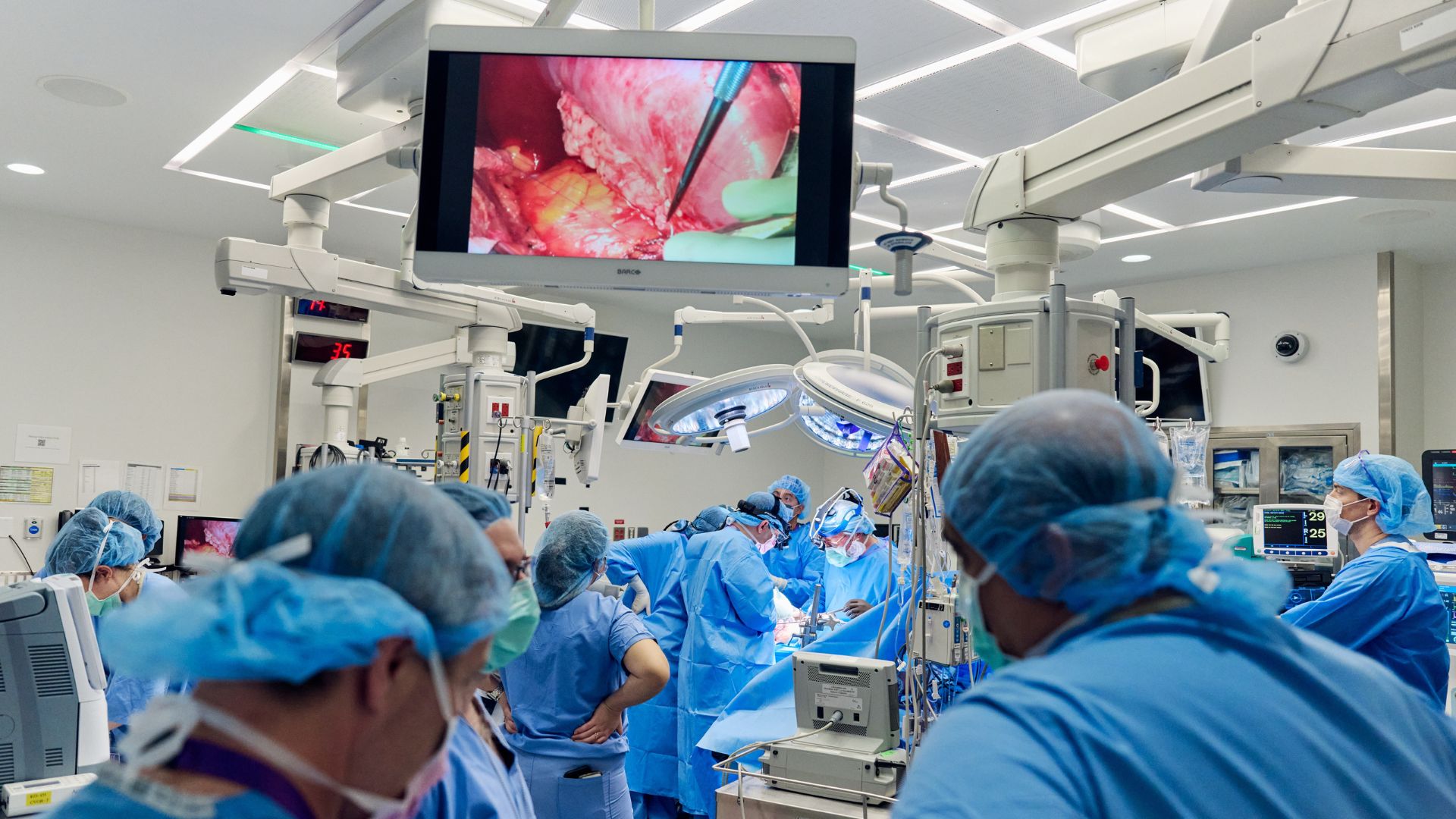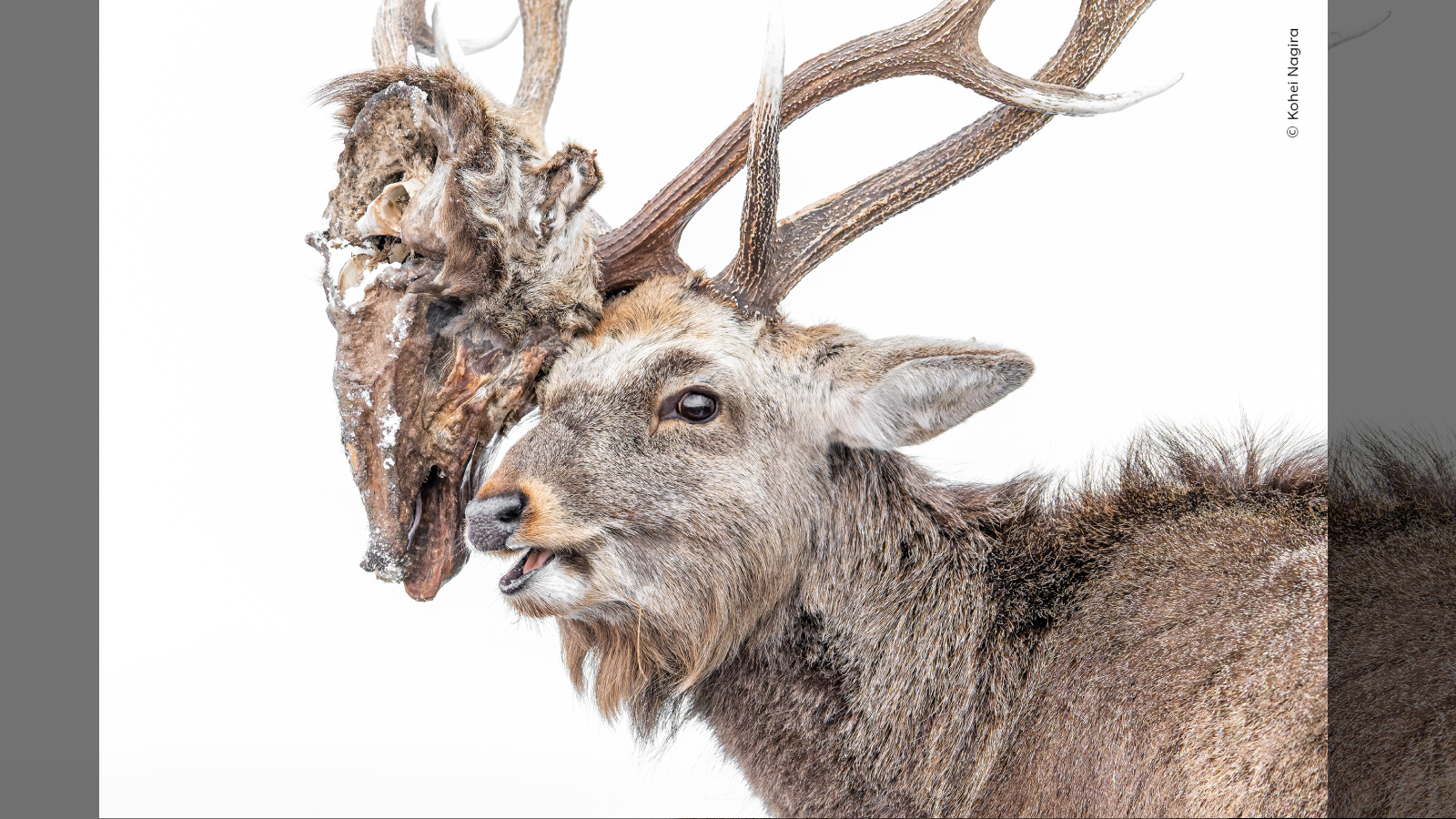'We have combined two marvels of modern medicine': Woman gets pig kidney and heart pump in groundbreaking procedures
In a medical first, doctors transplanted a gene-edited pig kidney into a human patient after giving her a new heart pump.

Get the world’s most fascinating discoveries delivered straight to your inbox.
You are now subscribed
Your newsletter sign-up was successful
Want to add more newsletters?

Delivered Daily
Daily Newsletter
Sign up for the latest discoveries, groundbreaking research and fascinating breakthroughs that impact you and the wider world direct to your inbox.

Once a week
Life's Little Mysteries
Feed your curiosity with an exclusive mystery every week, solved with science and delivered direct to your inbox before it's seen anywhere else.

Once a week
How It Works
Sign up to our free science & technology newsletter for your weekly fix of fascinating articles, quick quizzes, amazing images, and more

Delivered daily
Space.com Newsletter
Breaking space news, the latest updates on rocket launches, skywatching events and more!

Once a month
Watch This Space
Sign up to our monthly entertainment newsletter to keep up with all our coverage of the latest sci-fi and space movies, tv shows, games and books.

Once a week
Night Sky This Week
Discover this week's must-see night sky events, moon phases, and stunning astrophotos. Sign up for our skywatching newsletter and explore the universe with us!
Join the club
Get full access to premium articles, exclusive features and a growing list of member rewards.
In the first medical procedure of its kind, a New Jersey woman received a new heart pump along with a kidney and thymus gland from a pig.
Lisa Pisano, 54, had both heart failure and end-stage kidney disease, the latter of which required regular treatment with dialysis. However, she did not qualify for a traditional combined heart-kidney transplant because she had several chronic conditions that made her a poor candidate. There's a limited supply of human organs, so to qualify for multiple, a person has to meet certain criteria that suggest they'd have a good outcome.
Pisano's doctors at NYU Langone Health began looking into getting her a mechanical heart pump, called a left ventricular assist device (LVAD), which could extend her life. But getting the pump would be very risky while Pisano remained on dialysis, so she'd still have to secure a working kidney. Complicating the matter, the antibodies circulating in Pisano's blood meant she might have to wait years for a human kidney that "matched" her immune system to become available.
But she didn't have years to wait. "She only had weeks to live," Dr. Robert Montgomery, director of the NYU Langone Transplant Institute, told reporters at a news conference Wednesday (April 24).
Related: 1st partial-heart transplant growing with baby 1 year later
With no human kidney available, Pisano's surgical team instead looked to organs from gene-edited pigs.
In two procedures conducted over nine days in early April, Pisano received a heart pump and then a pig kidney and a thymus gland. The thymus helps train the body's immune cells, so including the gland should help prevent Pisano's immune system from rejecting the kidney, according to her doctors.
Get the world’s most fascinating discoveries delivered straight to your inbox.
"No LVAD patient had ever received a kidney transplant of any kind — human or pig — and so we didn't know if it would work," Montgomery said. "We have combined two marvels of modern medicine in a novel way," he said.
When the team pitched this idea to Lisa, "she was gung ho about this from the beginning," Todd Pisano, Lisa's husband, said at the news conference. "I really do hope … that they OK this [procedure] and people can benefit from this type of surgery."
This is also the first time both a pig's thymus and kidney have been transplanted into a living person; NYU had previously tested a similar procedure in a brain-dead organ donor. The hope is that the thymus will not only reprogram Pisano's immune system but also allow her to use a lower dose of immune-suppressing drugs than would typically be needed. The thymus gland itself was embedded into the transplanted kidney.
The pig that both organs came from had been gene-edited such that its tissue lacked a specific type of sugar. Known as alpha-gal, this sugar triggers an immune reaction in humans that would have caused the organ to be rejected.
This type of gene-edited kidney is relatively simple compared with the kind recently transplanted into a man in Massachusetts. In that case, the man's new kidney came from a pig that had three pig genes removed and seven human genes added. Montgomery said that, due to differences in how each set of pigs is raised, it's likely that these simpler kidneys will be able to enter widespread use more quickly than the complex ones.
Now, 12 days out from her transplant, Pisano's kidney function "is perfect, and she has no signs of rejection," Montgomery said. She'll need time to fully recover in a rehabilitation facility before being discharged, he added.
Like Todd, Lisa hopes that, in the future, more people will have access to this two-pronged procedure. "My goal was to make sure that I'm set up for somebody else — that somebody else sees what I went through and decides to take a leap, take a chance," Lisa said in a video statement released by NYU.
Ever wonder why some people build muscle more easily than others or why freckles come out in the sun? Send us your questions about how the human body works to community@livescience.com with the subject line "Health Desk Q," and you may see your question answered on the website!

Nicoletta Lanese is the health channel editor at Live Science and was previously a news editor and staff writer at the site. She holds a graduate certificate in science communication from UC Santa Cruz and degrees in neuroscience and dance from the University of Florida. Her work has appeared in The Scientist, Science News, the Mercury News, Mongabay and Stanford Medicine Magazine, among other outlets. Based in NYC, she also remains heavily involved in dance and performs in local choreographers' work.
 Live Science Plus
Live Science Plus





